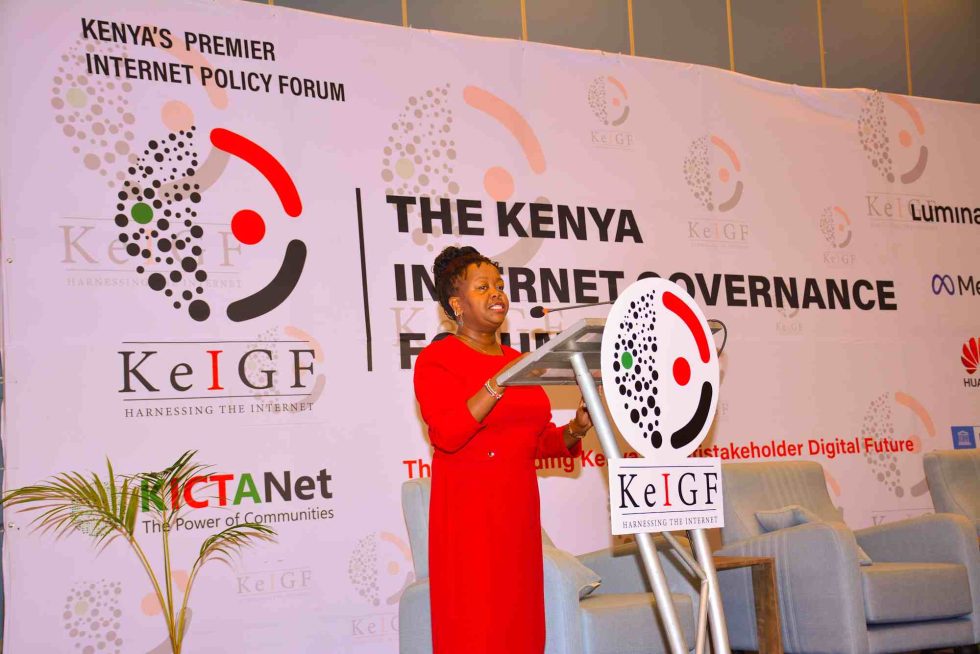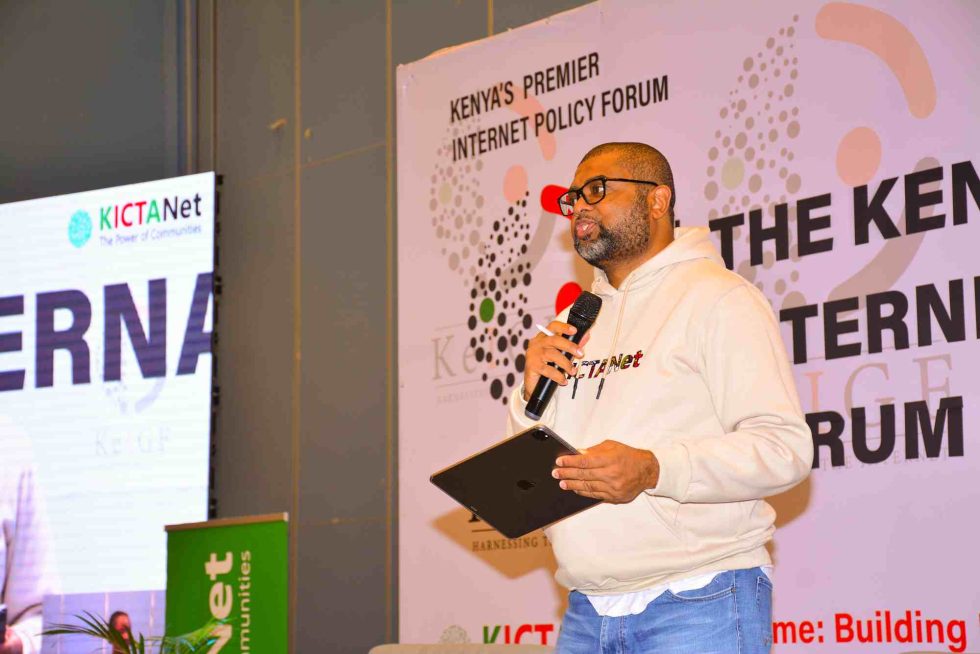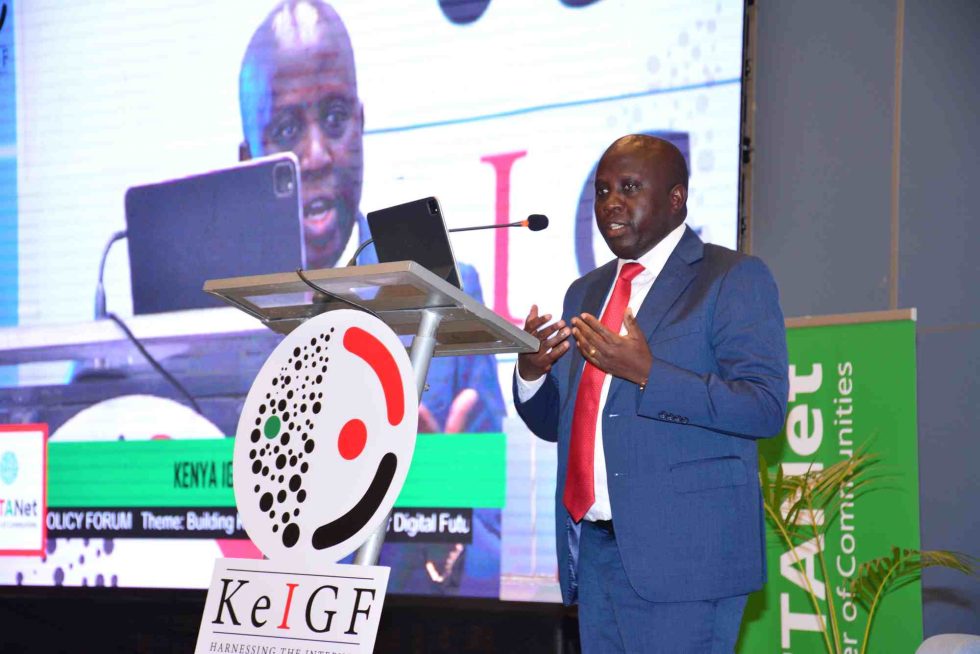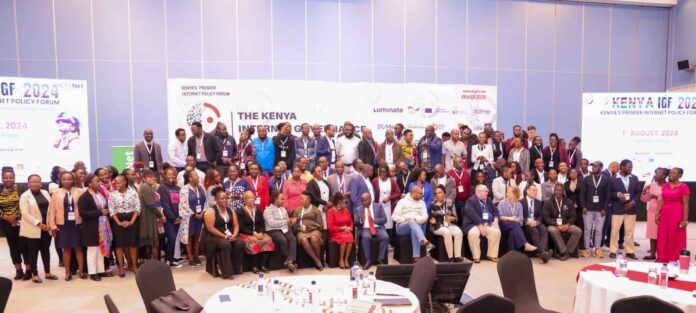By David Indeje
NAIROBI KENYA: The 17th Kenya Internet Governance Forum (KeIGF) kicked off on Tuesday, with a strong call for collaboration and inclusivity in shaping the country’s digital landscape.
Addressing the forum, Dr. Grace Githaiga, Convenor KICTANet, highlighted Kenya’s impressive digital strides over the past two decades. Internet penetration has surged from 3% in 2004 to 40.8% today, while mobile and smartphone adoption has skyrocketed.

The ICT sector has become a significant contributor to the economy, fueled by innovations in digital payments, e-commerce, and digital services.
However, Dr. Githaiga also underscored the challenges faced by the sector, particularly the internet shutdown experienced during the #RejectFinanceBill2024 protests.
“The disruption [internet shutdown] is unacceptable and must never happen again. As stakeholders in the ICT sector, we must Keep the Internet On, at all costs, at all times, and for all persons – #KeepItOn,” Dr Grace Githaiga noted.
This year’s KeIGF theme, “Building Kenya’s Multi-Stakeholder Digital Future,” was a central focus of Dr. Githaiga’s speech. She emphasized the importance of bringing together diverse stakeholders, including government, civil society, the private sector, and academia, to co-create a digital future that benefits all Kenyans.

To foster a vibrant digital ecosystem, KICTANet has been at the forefront of various initiatives, including the Kenya School of Internet Governance (KeSIG), the Children’s IGF, and gender training programs.
Ali Hussein, Chair of KICTANet Board of Trustees, echoed Dr. Githaiga’s call for collaboration in his welcome address. He outlined the forum’s key themes, including harnessing innovation while mitigating risks, enhancing the digital contribution to peace and development, advancing human rights and inclusion, and improving digital governance.
Eng. John Tanui, Principal Secretary for ICT and Digital Economy, delivered the keynote address, outlining the government’s ambitious plans for digital transformation.
PS Tanui highlighted the Digital Superhighway Program, which aims to connect 8.5 million homes and enterprises to the Internet, and the government’s commitment to digital literacy and skills development.
“Our ambitious 100,000 km fibre infrastructure program… aims to facilitate internet access and e-government services as rights for every citizen,” Eng. John Tanui.

Tanui also emphasized the importance of legal frameworks for digital governance, citing the Data Protection Act and the Computer Misuse and Cybercrimes Act as key milestones. However, he acknowledged the challenges posed by misinformation, disinformation, and cybersecurity threats.
The forum underscored the need for a collective effort to bridge the digital divide, protect human rights, and harness the potential of emerging technologies like AI while mitigating their risks. As Kenya navigates the complexities of the digital age, the KeIGF serves as a critical platform for shaping the country’s digital destiny.
The KeIGF is expected to generate actionable recommendations that will inform policymaking and shape Kenya’s digital future.














